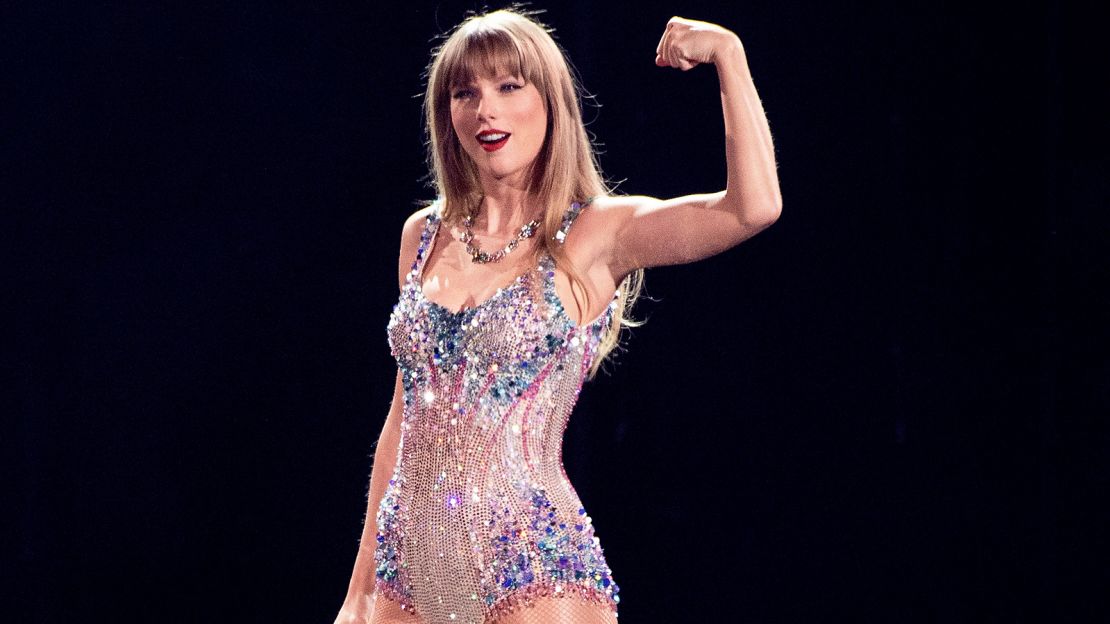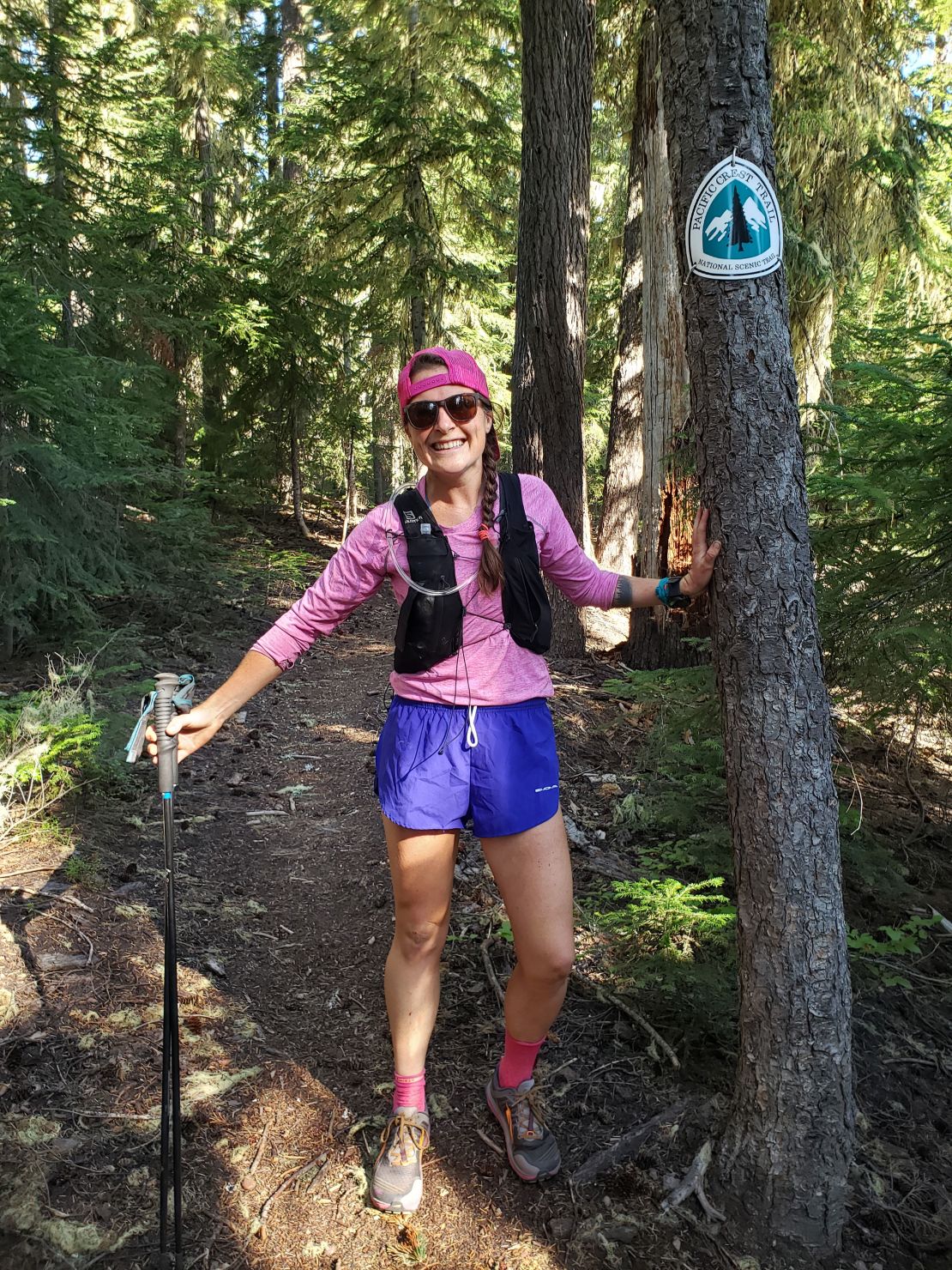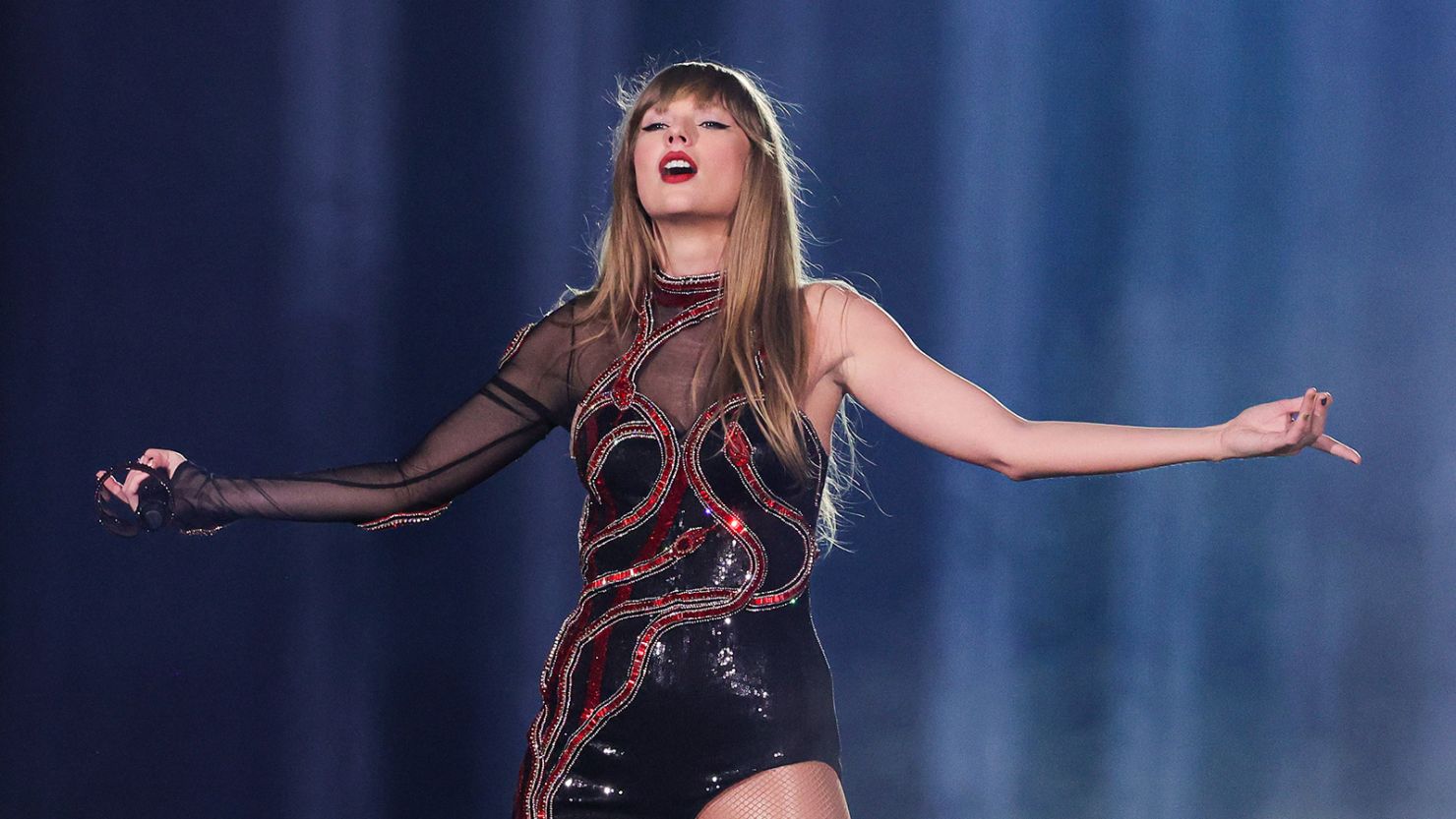Editor’s Note: Get inspired by a weekly roundup on living well, made simple. Sign up for CNN’s Life, But Better newsletter for information and tools designed to improve your well-being.
My first stirrings of discomfort at Taylor Swift’s show in Las Vegas hit after the infectious beat faded from fan-favorite “Cruel Summer,” the second song in her supersized set.
Swift strutted across the stage in a sequin bodysuit and matching boots. Her cat eye was drawn sharp enough to kill a man, as she says.
She thanked the crowd of thousands of cheering fans for their deafening support and as the roars died down, she paused, and then bellowed out the line that undid me — and sent a powerful message about embracing success to the tens of thousands of women in attendance.
“You’re making me feel like I’m the first woman to ever headline Allegiant Stadium.”
She flicked her gaze down to her biceps and pumped her arms in victory.
The crowd lost it. My jaw dropped. My gut clenched and braced itself for a blow.
I’d just heard Swift, a woman, bellow out her accomplishment, with no qualifiers, no, “I did a thing” and not a single ounce of humility to soften the punch.
It was just an unapologetic and audacious declaration of her success.
Challenging double standards

When I walked into Allegiant Stadium in Las Vegas, I expected to be blown away by Swift and the 44 songs she performs live for the “Eras Tour.” But I didn’t expect to feel uncomfortable at her declaration of her unbridled ambition.
The timing of her declaration was a little cheeky; it was part of her introduction to the song, “The Man,” which calls attention to the sexist double standards that women face, including ones Swift has battled in the music industry.
“What’s it like to brag about raking in dollars and getting bitches and models,” she sang. “If I was out ?ashing my dollars, I’d be a bitch, not a baller.”
When she shouted out her accomplishment in Las Vegas, alongside a matching victory dance, I’m sure it was meant to conjure masculinity and highlight the double standard surrounding success, since nothing Taylor Alison Swift does is unintentional. She’s known for leaving an unending trail of Easter eggs for her fans to find and decipher, which reveal clues about things like album drops and the true meaning of a lyric.
She’s a mastermind in everything she does, sings and shouts to a football stadium full of fans.
That’s why, even if the timing was part of her performance around “The Man,” it was also no accident that Swift decided to belt out her success that night.
And whether we were cringing in our seats, like me, or cheering her on, also like me, her words delivered a powerful message.
I’m insecure about my own ambition

The discomfort I felt had nothing to do with Swift or her record-setting performance. My inner cringe was fueled by my own insecurities with female ambition and the social conditioning that has taught me to shy away from owning my successes. I was projecting my own unease on Swift.
Intellectually, I root for ambitious women to take up space in the world, but emotionally, I’ve got some deep-seated resistance to the idea, as evidenced by my gut reaction.
Like Swift, who will perform for over three straight hours on every night of this 52-stop tour, I’m also an endurance athlete. I’m a long-distance trail runner, and while I’m not even close to being the Taylor Swift of ultra running, I have experienced some successes in my athletic endeavors — but I can barely talk about them in front of a single person, never mind 70 thousands of them.
Like, when I raced a 50-miler a couple of summers ago, and friends asked me how I did.
“I had a lot of fun,” I’d say. “I felt strong all day.”
I usually waited for my partner or someone else to fill-in-the-blank that I’d won the race. Or I’d just leave that detail out. I do that often, whether it’s my finisher place, pace or distance.
I don’t want to be ‘that’ woman
I don’t want to brag, or seem cocky, competitive, or, heaven forbid, self-promotional. That phrase alone feels dirtier than the floor of a football stadium after a three-hour show.
I’ve watched women get villainized for ambition and success since I could say the words, “Hillary Clinton.” I know the safer path for a woman is to be humble and modest.
When I decided to attempt a speed record on the 460-mile stretch of the Oregon Pacific Crest Trail, one of the hardest parts of the run was telling people about my goal, which was a requirement for this record.
I didn’t want to come off as a strong and competitive woman, who believed that I was capable of achieving something big. I certainly didn’t want to seem like I was chasing success, an ambitious woman with the audacity to be confident. The better story would be to stumble into an accomplishment, not to overtly hunt it down myself.
In my first draft of this essay, the one I didn’t initially share with my editor, I omitted that I went on to set that record — and beat the men’s times, as well. (Editor’s note: One of her most notable runs was setting the overall Fastest Known Time on the 460-mile Oregon PCT in 7 days, 19 hours, and 23 minutes.)
She had a powerful impact on me
My discomfort in Las Vegas transitioned to awe, followed Swiftly by a “Hell yeah, Taylor.”
By the time I was back home in Oregon, I couldn’t stop thinking about how powerful it was that Swift was so bold. It didn’t stop at that one statement — she delivered a three-hour masterclass in confidence and pride in what she’s accomplished. And I liked it. I think most of us at Allegiant Stadium did. Over the course of this tour, millions of women will watch her share her success.
At least one of those women in the audience needed to hear her to celebrate her own success (and probably more than I would’ve guessed based on my initial reaction).
I watched clips of her performance at AT&T Stadium, home of the Dallas Cowboys, the next weekend. When the beat from “Cruel Summer” faded, she did it again.
“I’m the first artist to play three nights in this stadium,” she shouted.
I watched her shimmy, her face full of unapologetic joy as she shook her hips in front of tens of thousands of people, and this time, I didn’t cringe. I thought about how I can be a little more like Swift the next time I succeed.
Emily Halnon is a runner and writer based in Eugene, Oregon. Her essays have appeared in The Guardian, The Washington Post, Salon and Runner’s World, and her memoir “To the Gorge” is set to publish in 2024.




